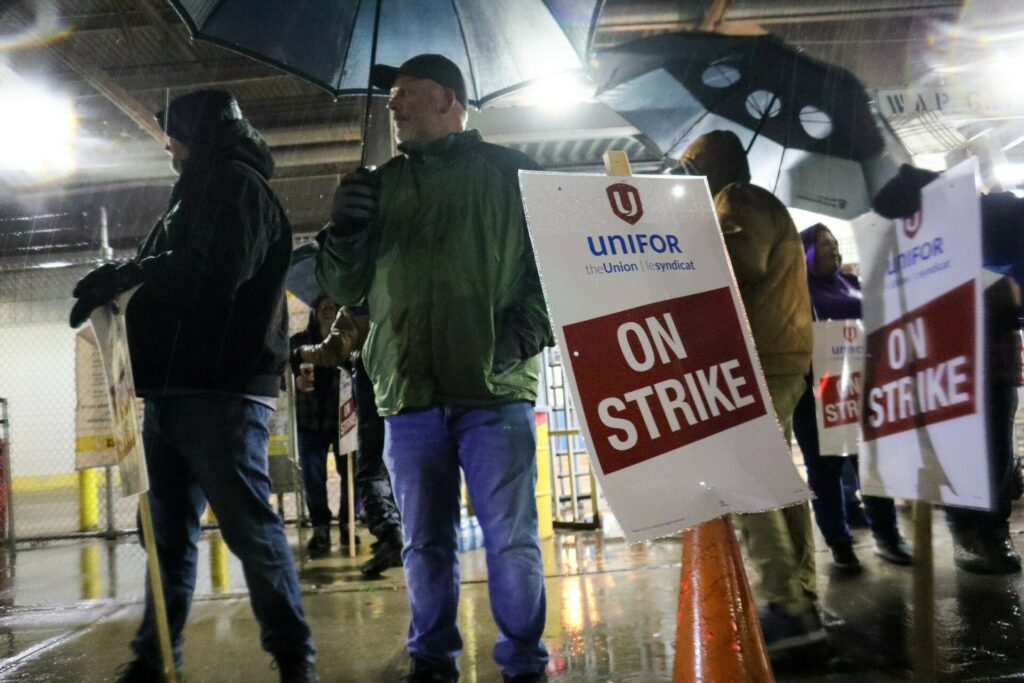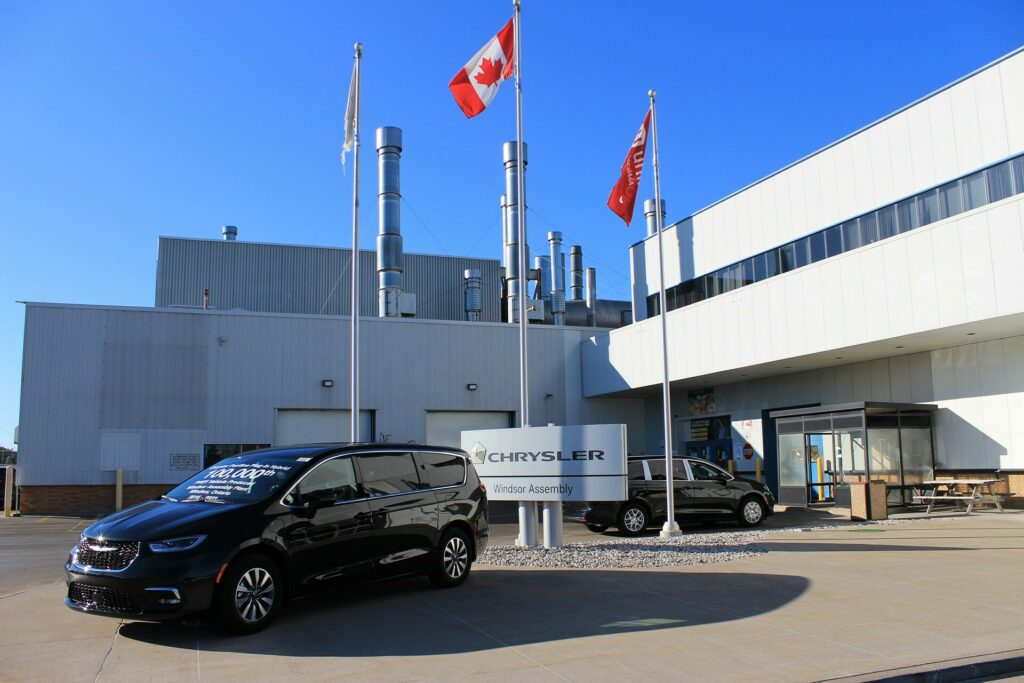While much of the focus was on the UAW last weekend, they weren’t the only labor union making waves. Quite the opposite as Canada’s Unifor union went on strike at Stellantis facilities on October 29 at 11:59 pm.
The move came after “days of stalling” from Stellantis and the union suggested the automaker only got serious about discussions as the deadline approached. That pushed Unifor to tell the company there would be “no concessions and no extensions.”
The two parties continued talking into the night and a tentative agreement was reached earlier today. Unifor said the short strike “demonstrated the strength of our union and provided your bargaining team with the means to achieve a tentative agreement that meets both the core economic demands in the union’s pattern agreement and our Stellantis specific demands.”
More: GM And Unifor Reach Tentative Agreement After Short Strike

Full details will be presented to members in the coming days, but the union said the agreement includes base hourly wage increases of nearly 20% for production and 25% for skilled trade employees. This, combined with the new cost of living allowance, will see a top-rate production assembler make an estimated $46.13 CAD ($33.34 USD) per hour, while a journeyperson skilled trades worker should make around $57.58 CAD ($41.62 USD) per hour.
On top of that, there are pension improvements and a wage progression timeline that has been cut to just four years. Members will also get two new paid holidays as well as “general wage increases in each year of the agreement with 10% in year one, 2% in year two and 3% in year three.” Furthermore, temporary part time employees will get a $4,000 CAD ($2,890 USD) bonus, while full-time employees will receive $10,000 CAD ($7,225 USD).
Stellantis North America COO Mark Stewart said, “I am very proud of the negotiating teams and thankful for their commitment and focused effort in reaching a tentative agreement with Unifor. Once ratified, this agreement will reward our 8,000 represented employees and protect the long-term health of our Canadian operations.”





